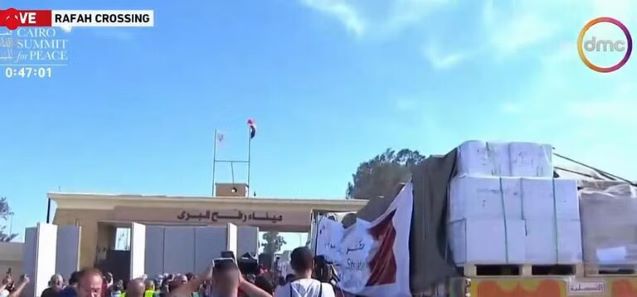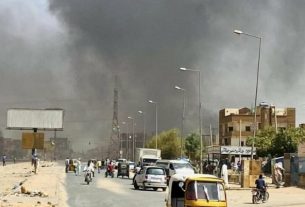New Delhi: After nearly two weeks of anxious anticipation, aid trucks have finally crossed into Rafah Border Crossing, delivering much-needed relief to the embattled civilians in Gaza.
The development not only brings hope to the people of Gaza but also marks a significant milestone for global negotiators who have persistently called on Israel to permit the delivery of aid to those in need.
Live images captured the convoy of UN vehicles, marked with white flags, as they made their way into southern Gaza from Egypt, symbolizing the rekindled hope for the region.
Another glimmer of hope emerged yesterday with the safe release of two American hostages Jadith Tai Raanan and her 17-year-old daughter Natalie Ranan.
Their freedom was secured through the dedicated efforts of Qatari negotiators. These two victims, both US citizens, had been abducted by Hamas during an attack on Israel nearly two weeks ago along with some 200 other Israeli citizens.
Amidst a protracted period of conflict marked by violence, airstrikes, and rocket fire, these positive developments offer a fresh sense of optimism.
They provide hope not only for the hundreds of thousands of civilians directly affected by the ongoing strife but also for the international community, which fervently seeks a ceasefire and a return to peace in the region.
While the Rafah crossing has opened to allow the entry of aid trucks from Egypt into Gaza, the duration of the opening remains uncertain. Israel has granted permission for 20 trucks to enter Gaza.
A UN representative said to the media that the aid convoy waiting for the Rafah border crossing to open, though significant, is a mere “drop in the ocean” in the face of the extensive needs in Gaza, according to Juliette Touma from the Relief and Works Agency for Palestine Refugees in the Near East.
She emphasizes the necessity of a sustained and uninterrupted flow of humanitarian aid to truly address the crisis.
“What civilians in Gaza urgently require is continuous and sustainable humanitarian access, including, and especially, fuel for water stations,” Juliette Touma stated in an interview with Radio 4’s Today program.
Israel’s decision to allow 20 aid trucks into Gaza is a promising development. However, it has not granted approval for the transport of fuel across the border.
Touma underscores the critical importance of fuel to power water pumps, as the water situation in Gaza has reached a critical state, with some areas already facing complete water depletion.
This news marks a turning point in the ongoing conflict, offering a glimmer of hope in what has been a tumultuous and challenging period for the people of Gaza and the international community’s efforts to bring peace and stability to the region.__GK News





